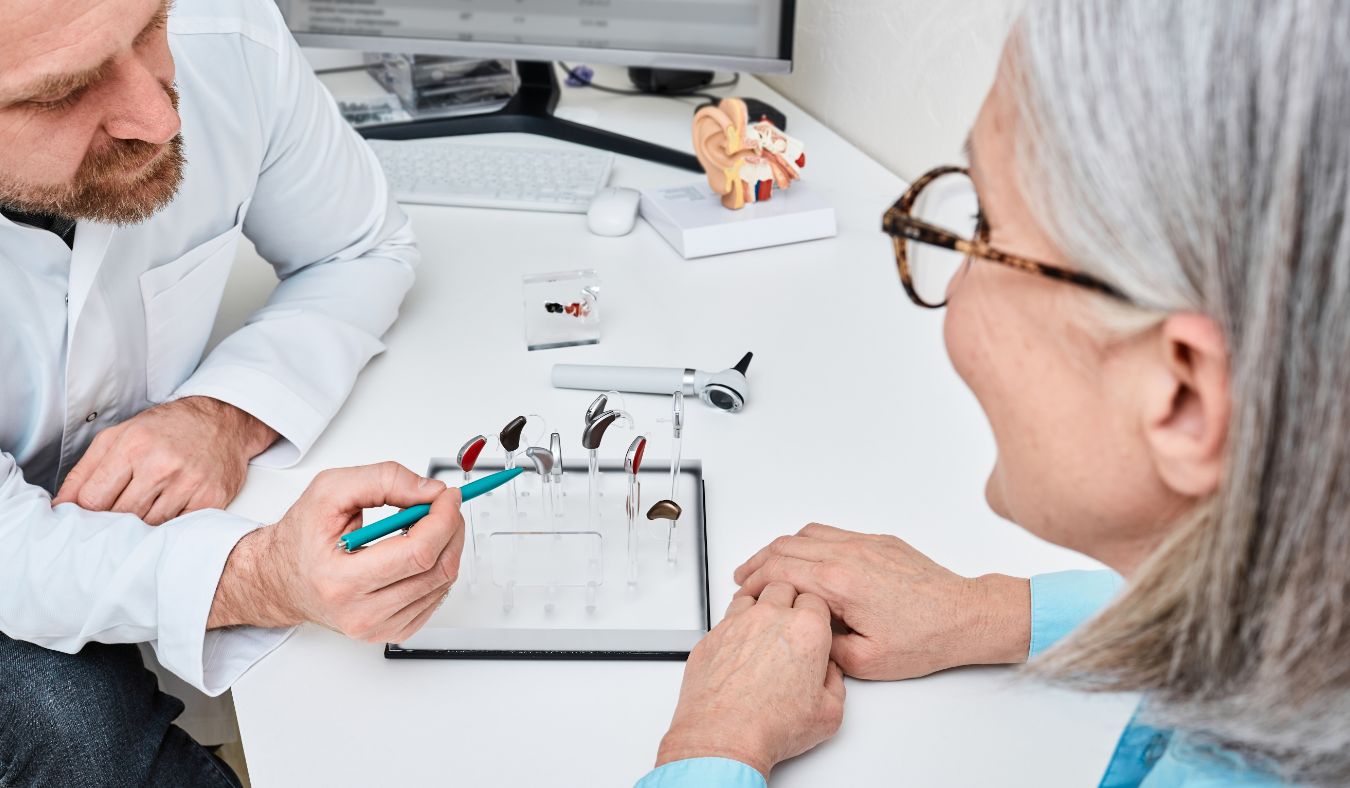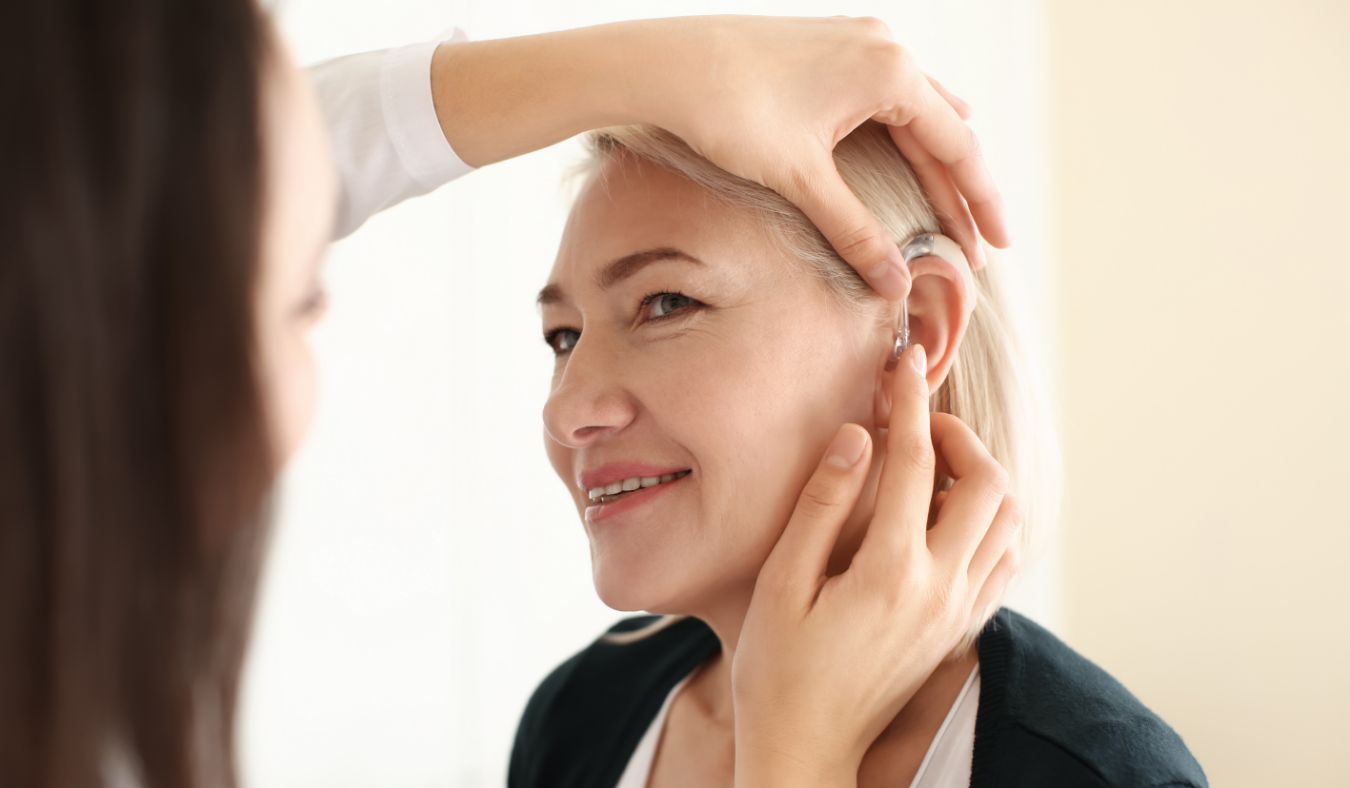Audiology Services: Hearing Care to Stay Connected
Hearing changes often happen in tiny increments. So small that you might

By: admin | May 23, 2025
Hearing loss affects many of us, yet it often remains invisible to those who don’t experience it. When we can’t hear clearly, everyday activities become challenging – following conversations at dinner tables, participating in meetings or catching important announcements. These aren’t just minor inconveniences; they can lead to feeling isolated, missing crucial information and being unable to fully engage with friends, family and colleagues. Many of us with hearing loss worry about being seen as difficult or disengaged when we’re simply trying to understand what’s happening around us.
That’s why advocacy for hearing loss awareness matters so much. By speaking up, we help others understand that small changes can make big differences – like facing someone when speaking, reducing background noise or providing written alternatives to verbal information. When more people recognize hearing loss as a common condition that needs practical support rather than pity, we create spaces where everyone can participate fully. Advocacy isn’t just about accommodation; it’s about creating a society where hearing differences are respected and addressed thoughtfully. Through sharing our experiences and needs clearly, we build a more accessible world for everyone.
Advocacy matters because it gives people a voice in shaping the policies, systems and conversations that impact their lives. Whether it’s related to health care, education, environmental issues or civil rights, advocacy helps bring attention to challenges that might otherwise go overlooked. It encourages decision-makers to listen and take action, often leading to more equitable access, better services or stronger protections. When individuals and communities speak up – especially those who are directly affected – it can lead to real, meaningful change that reflects the needs and experiences of a broader population.
Beyond influencing policy, advocacy builds understanding. It creates space for people to share their stories, challenge assumptions and find common ground. It also empowers others to get involved, whether by voting, volunteering or simply staying informed. Advocacy isn’t just about large movements or public speeches – sometimes it’s as simple as asking the right questions, supporting someone else’s cause or standing up when something isn’t fair. When people advocate together, it can shift not only what’s possible in society but also how we relate to each other with more compassion and awareness.
Hearing loss can have a profound effect on daily communication, often creating misunderstandings, missed information and the need for repetition. Over time, these challenges can lead to frustration for both the person experiencing hearing loss and those around them. Simple conversations may become exhausting or feel like a chore, especially in group settings or noisy environments. When someone frequently mishears words or responds out of context, it can lead to embarrassment or a reluctance to engage at all. These breakdowns in communication can gradually distance people from social activities, making it harder to stay involved in family life, work conversations or casual interactions.
Relationships are often impacted as well. Partners, friends and family members may begin to feel disconnected or unheard when communication becomes strained. They might interpret withdrawal or quietness as disinterest, when in reality, the person with hearing loss is simply struggling to keep up. This dynamic can create emotional distance or lead to resentment on both sides. In professional settings, hearing difficulties can cause someone to miss out on important information or avoid speaking up, affecting confidence and performance. Over time, the combination of miscommunication and reduced interaction can leave a person feeling isolated or misunderstood, even among people they care about.
These social and emotional consequences often take a toll on mental health. Hearing loss has been linked to increased rates of anxiety, depression and cognitive strain. The ongoing effort to listen and interpret sound – sometimes called “listening fatigue” – can be mentally draining, especially in unpredictable sound environments. When people begin to avoid social situations to escape the stress of mishearing, they risk losing their sense of connection and support. This cycle can be subtle at first but may gradually lead to reduced quality of life.
Educating society on hearing loss is a pressing necessity because it directly impacts how individuals with hearing loss are treated and supported in their daily lives. When society becomes more aware, it leads to tangible improvements in multiple areas. For one, better support systems can be established, whether through community programs, more inclusive educational settings or workplace accommodations that create a more equitable environment for everyone.
Improved accessibility is another key benefit. As awareness grows, businesses and public spaces are more likely to invest in solutions that address hearing loss, like assistive listening devices or sign language interpreters. This not only helps those with hearing loss, but also fosters an environment where everyone can fully participate, reducing barriers to social and professional engagement.
Perhaps most importantly, a broader understanding of hearing loss fosters empathy. This cultural shift can change how individuals with hearing loss are perceived in everyday situations. In the workplace, it can lead to more patience and accommodations from colleagues. In family or social settings, it can result in more consideration and efforts to communicate effectively. Over time, these subtle but important changes can greatly improve an individual’s overall quality of life, reducing isolation and helping them feel valued and heard in all aspects of life.
From psychological impact, let’s shift our focus to another equally critical aspect – early detection and swift action. Timely identification of hearing loss can significantly improve your quality of life by allowing for prompt intervention and effective management strategies.
Hearing loss doesn’t happen overnight. It’s usually a gradual process that might go unnoticed until it becomes severe. Regular hearing check-ups with an audiologist are vital in detecting any changes at an early stage, giving you the best chance to manage them effectively.
Consider these check-ups as necessary maintenance for your ears, akin to regular health check-ups. Early detection provides more options for treatment and less disruption to your daily life. It enables you to take control, rather than feeling controlled by your hearing loss.
Your unique encounters with hearing loss can serve as a catalyst for positive change. By sharing your story, you’re not only fostering a deeper understanding of this issue but also inspiring others in similar situations. When people hear firsthand accounts, it can break down misconceptions and create a more supportive environment for those affected by hearing loss.
Remember, your experiences hold immense potential to shape a more empathetic and inclusive society. Every story shared can challenge stereotypes, reduce stigma and foster a broader sense of community. By speaking up, you encourage others to do the same, creating a ripple effect of awareness and compassion that extends far beyond your immediate circle.
In addition to personal stories, social media platforms offer a powerful way to raise awareness about hearing loss. With billions of people around the world using Facebook, Instagram, Twitter and other platforms, these tools present a unique opportunity to spread information, connect with others and foster understanding. By posting facts, sharing your personal experiences or simply engaging in online conversations, you can help increase awareness of hearing loss and its impact on people’s lives.
Social media also provides a space for individuals with hearing loss to connect with each other, share insights and offer support. This virtual community can break down barriers and reduce the stigma surrounding hearing loss, making it easier for others to understand the challenges people face. By leveraging these platforms, you can play a key role in changing perceptions and building empathy towards those affected by hearing loss.
Participating in events focused on hearing loss awareness is another impactful way to increase understanding. These events – ranging from awareness campaigns and community gatherings to educational seminars – allow you to actively engage in spreading knowledge. By participating in these activities, you contribute to breaking down misconceptions and advocating for those affected by hearing loss.
These events also provide opportunities for learning from others, fostering an exchange of experiences that encourages empathy and mutual understanding. Many events bring together experts and individuals with lived experiences, creating a space for direct interaction and education. By being involved, you take on the role of advocate, influencing policies and practices that make society more inclusive for everyone. Your participation matters – it helps build a world where hearing loss is better understood and accepted.
Turning advocacy into action starts with simple but impactful steps you can take today. One of the first ways to make a difference is by opening up about your experiences with hearing loss. Sharing your journey not only helps others understand what it’s like to live with this issue, but it can also inspire others in similar situations to do the same. Your story can influence people’s perceptions and lead to greater empathy towards those with hearing loss.
Consider also volunteering for organizations dedicated to improving the lives of those affected by hearing loss. Your time and efforts can make a tangible difference, whether through fundraising, helping with community events or supporting advocacy initiatives. Another key step is to educate those around you. Talking to friends, family or coworkers about hearing loss can help spread awareness and foster understanding in your immediate environment. Every action, no matter how small, contributes to creating a more inclusive society where everyone is treated with empathy and respect.
When we speak up about hearing loss, we create an environment where understanding and support thrive. By sharing our experiences and educating those around us, we shift the perception of hearing loss from something misunderstood to something that can be addressed with simple adjustments and respect. Each conversation about hearing loss opens doors for better communication, greater inclusion and the elimination of unnecessary barriers that keep us from fully participating in life. As we work together to increase awareness and advocate for changes, we help create spaces where everyone can be heard and understood, regardless of their hearing abilities.
At Anne Arundel Audiology in Glen Burnie, MD, we’re dedicated to providing personalized hearing solutions that address your specific needs. Whether it’s through custom hearing aids or expert guidance, we aim to offer solutions that work better, feel more comfortable and help you engage fully with the world around you. If you or someone you know is ready to explore how we can help with hearing challenges, give us a call at (240) 917-2108. Together, we can ensure that hearing loss is met with the understanding and support it deserves.
Tags: hearing loss and mental health, hearing loss symptoms, types of hearing loss

Hearing changes often happen in tiny increments. So small that you might
By: admin | January 23, 2026

When you notice changes in your hearing, one of the first questions that
By: admin | January 19, 2026

The hearing aids of yesteryear were clunky, uncomfortable, whistling
By: admin | January 4, 2026